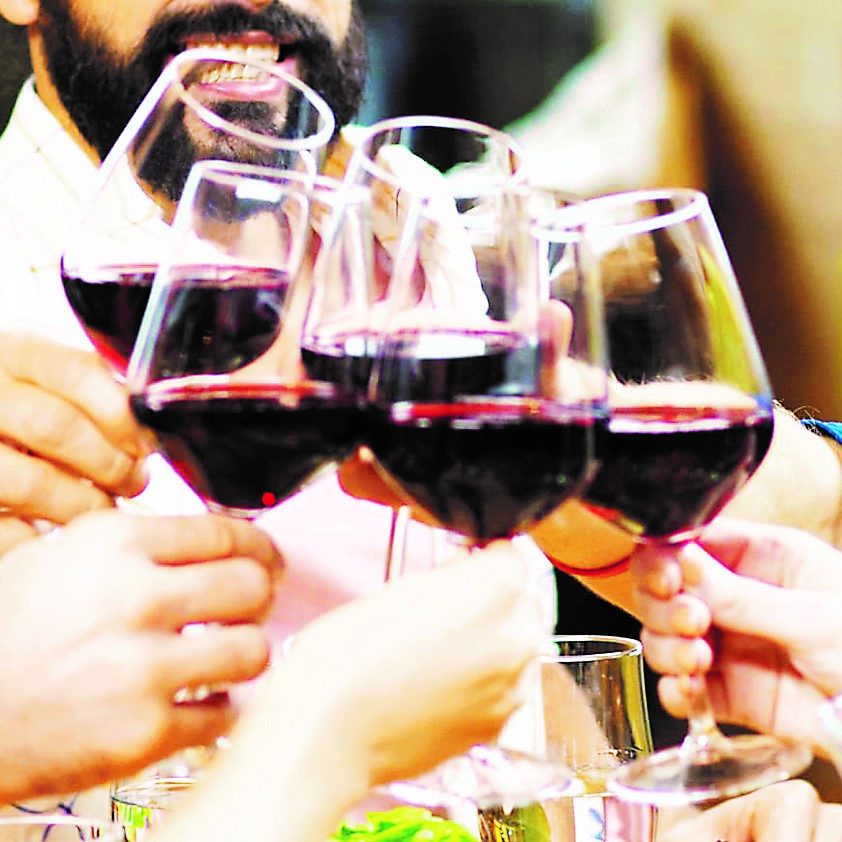click to dowload our latest edition
CLICK HERE TO SUBSCRIBE TO OUR NEWSLETTER


Published
4 years agoon
By
adminGILLIAN KLAWANSKY
Yet, with resultant behaviour potentially leading to underage drinking, unruliness, alcohol poisoning and worse, this mitzvah (commandment) has become a topic of robust debate amongst rabbis and the broader community.
“There’s a difference between having a shot or two of whiskey, and getting drunk under the table,” says Rabbi Pini Pink of Chabad of Greenstone. “Getting drunk is never a good thing. I don’t believe that rabbis even from Talmudic times were getting drunk and sick in front of kids. They were probably having a few l’chaims (toasts to life) to the point of being very merry.”
Purim has unfortunately long been mistakenly associated with a lack of restriction and rules, he says. “There are many other mitzvot of Purim that have to be fulfilled, and you can’t say I didn’t hear the Megillah because I was too drunk. It’s not a licence to run away from other obligations.”
Today, having one or two l’chaims depends on where and who you are, he argues. “If you’re someone who knows you can have a shot of whiskey and it will make you slightly happier, that’s one thing. If you know alcohol isn’t a friend of yours, it’s a no-no.” Moderation is key, stresses Pink, and moderation can be different for every person. “You’re the true judge of what you can handle,” he says.
Rabbi Sam Thurgood of Beit Midrash Morasha in Arthurs Road, Sea Point, takes a stricter stance. “The bad public relations that Purim gets is concerning and problematic,” he says. Thurgood hosts an alcohol-free Purim at his shul, and argues that there’s no halachic obligation to get drunk on the holiday.
“The law is that a person should have one drink more than they normally have. If on a normal day they have nothing, on this day they have one. If on a normal day they have one, on this day they have two. That’s the extent of it,” Thurgood says. “The mitzvah also refers to the day of Purim, not the night. We don’t have Purim celebrations at our shul during the day, only during the night where there is certainly no mitzvah regarding drinking.”
Rabbi Mendel Rabinowitz of Greenside Shul has a similar view, arguing that certain interpretations of the Talmudic text are used as “a smokescreen for just getting drunk”. He talks of situations where people have become so ill on Purim, Hatzolah has been called.
“As people drink more, they say, ‘We’ll call Hatzolah if there’s a problem.’ It’s there for emergencies, not for getting drunk and relying on them.
“The idea of drinking to the point where you’re putting your life in danger is the antithesis of Torah,” he says. “There is a law in the Torah that you’re obligated to look after yourself.” Getting inebriated, in and of itself is problematic, but it’s even more so if you’re planning to drive.
“You’re not only disobeying the laws of the country, you’re disobeying the laws of the Torah by endangering other people’s lives.”
Often it’s the youth, many of whom are underage, who overindulge. “Parents sometimes drop their kids off at shul Purim celebrations, and that’s also problematic because then who is going to be responsible for them?” asks Rabinowitz. “It’s the same issue that arises at Barmitzvahs and Batmitzvahs. Drinking isn’t monitored, and kids go to the bar and get drunk. Although there are no official statistics, the reality is that we have a growing problem with alcohol abuse in our community. The shuls should take a stand against it, not turn a blind eye or encourage it.”
Another concern is that children see their parents getting drunk on Purim or at other celebrations that have become associated with alcohol. “It’s absolutely wrong,” says Rabinowitz. Pink agrees. “For the child to see the parent in a state of drunkenness, either behaving badly or passed out, is certainly going to scar the child emotionally. Conversely it could cause an older child to copy their parents. We can’t say ‘do as I say, and not as I do’ and then down a bottle of whiskey and expect our kids to behave themselves.”
It’s all a matter of context, says Rabinowitz. “I’m not suggesting we go back to the times of bootlegging or saying that alcohol should be banned from shuls.” Yet, he feels that in some instances, there’s far too much emphasis on drinking.
“We don’t have a problem with drinking at shul on Purim. We have a problem, in some communities, with drinking throughout the year,” he says. “Advertising shuls based on the amount of free liquor you’re going to give, and using that as a way of bringing people to shul, is repulsive. One has to question what one is doing under the banner of kiruv [reaching out to non-Orthodox Jews]. All that it’s doing is creating a culture of drunkenness, which is hugely problematic.”
Thurgood also speaks of the dangers of enforcing such a culture, a common holdover from the days of Jews in Eastern Europe. “It became associated with Torah, which it isn’t. The Rambam, Maimonides, and other sages, said that drunkenness was forbidden. It’s one of those things that crept in as a Jewish cultural thing, and became understood in some contexts as religious practice. Yet, it needn’t be seen in that way.”
“There’s a time and a place for people to be relaxed around a table, and have a couple of l’chaims,” he says, “but a culture of drunkenness shouldn’t be associated with Judaism or with Torah life.”
Ultimately on Purim, and indeed throughout the year, common sense should prevail, says Rabinowitz. “There should be a sense of occasion, and a sense of responsibility.”
